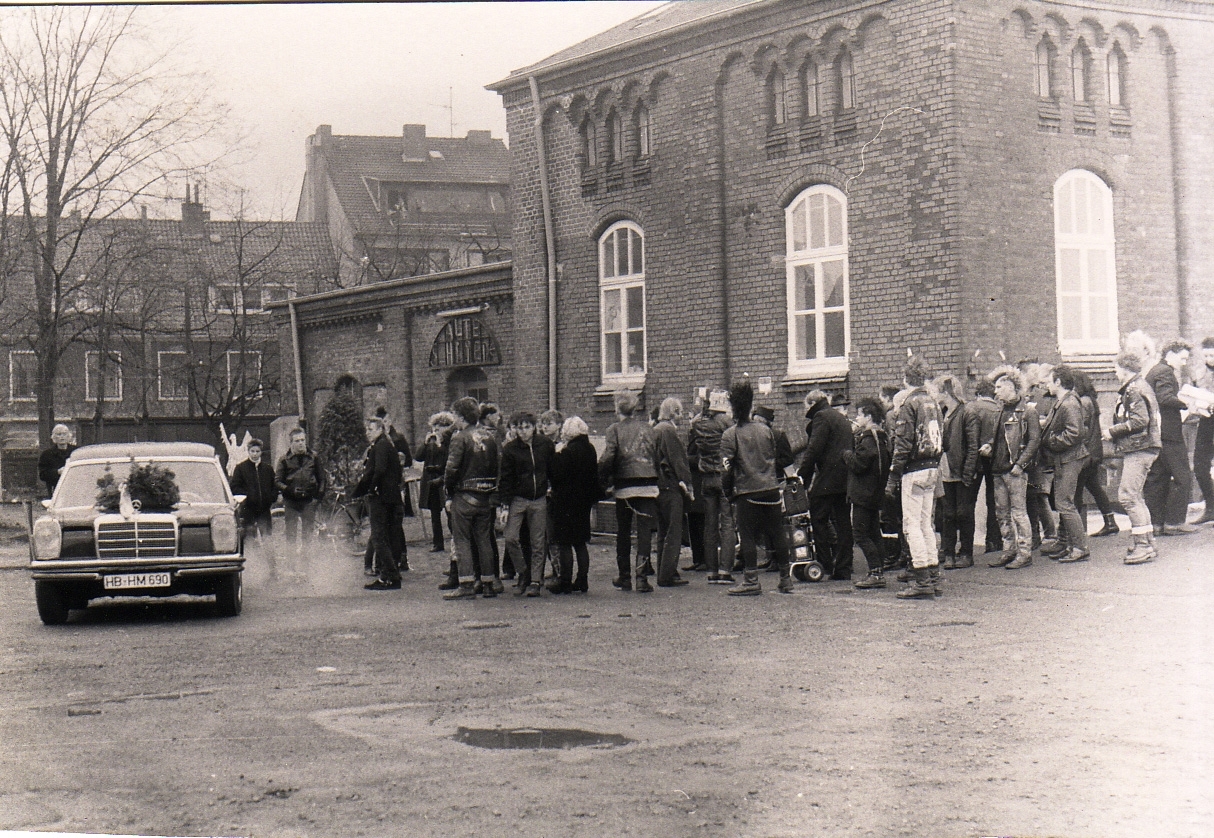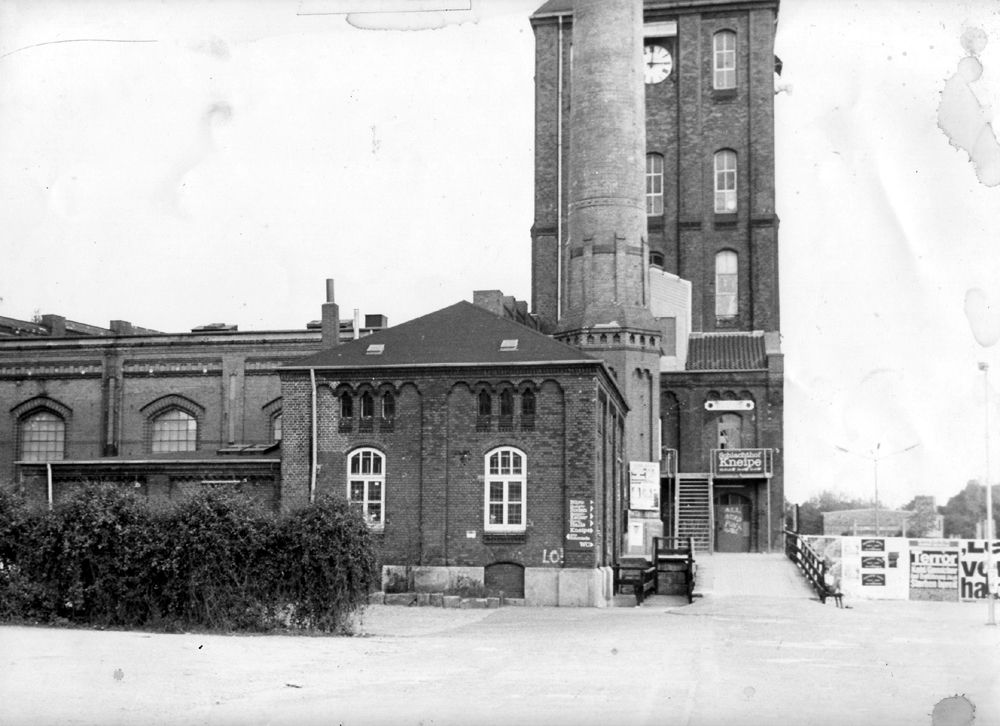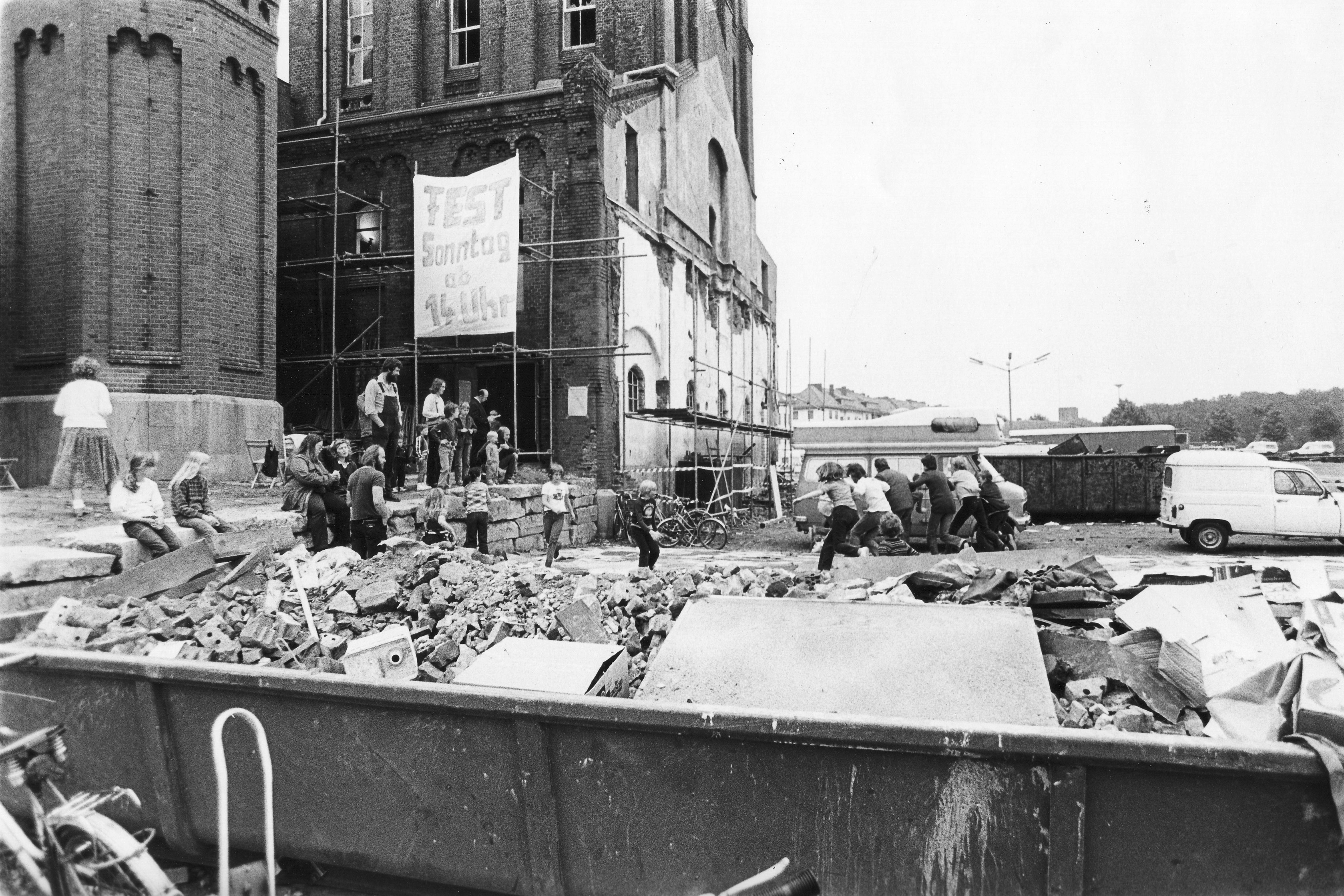Association
If walls could talk or from dead meat to living culture
When the slaughterhouse moved to another part of town in 1977, it had a history of almost a hundred years behind it. After the slaughterhouse was closed down, the buildings stood empty for a long time. The people of Bremen, especially the young, were left wondering how the city could use this prime piece of industrial architecture. Since this was a time of social change and criticism of the conventional cultural scene. The building was initially occupied by squatters before the idea for a new cultural centre was born. The association “Kulturzentrum Schlachthof e.V.” was officially registered on 17 December 1979.
A group started negotiations with the politicians of the city. Up to this point, the great hall had already been used as a venue for all kinds of cultural events, but suddenly on August 13th, 1980, at four a.m. a demolition crew made its move and destroyed the building. Protests and numerous demonstrations ensued, even parts of the ruling Social Democrat Party condemned the demolition as an intolerable clandestine operation.
Undiscouraged, the Schlachthof supporters occupied the remaining buildings. Finally, after a protracted struggle the foundation ‘Wohnliche Stadt’ granted funds for the renovation of the water tower, Kesselhalle and Magazin area. In October of 1981 the Kesselhalle opened its doors and ever since this building has been a favourite venue for music, theatre and dance. Workshops were founded, to develop and initiate projects, ideas and plans were discussed for structuring the centre. A critical approach to the media was tried and the newspaper Zett, now Z-Magazine, was published as a platform for counterpointing mainstream publications.
A plaque in front of the building reminds since 1995 that during the reign of the National Socialists the Schlachthof served as collecting point for Romany people, before they were deported.
In the association the voluntary executive committee is the highest decision-making body. However, the day-to-day business is conducted for more than four decades by the permanent staff in the form of cooperative management. Self-management with professional division of labour leads to a high degree of flexibility. Responsible action combined with adequate use of resources, striving for consensus and transparent decision-making processes are the maxims of our work. They have made the Schlachthof what it is today.




